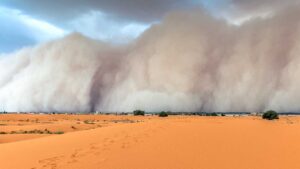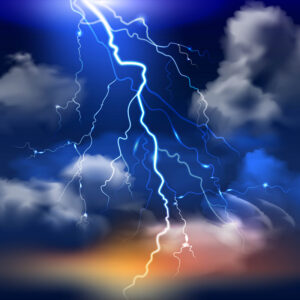
Secure Temporary Lodging
If you’re not able to stay in your home after a hurricane has wreaked havoc upon it, you’ll need to secure other lodgings. This could mean staying with friends or family temporarily, securing an Airbnb or a hotel, or using local resources to seek out an emergency shelter. If your home will be undergoing repairs, your insurance company may provide funds to help cover lodging and other expenses, however, there may be financial limitations as per your policy coverage. And while it’s tempting to enter your home to collect personal possessions including clothing and supplies before moving to temporary housing, downed power lines and open areas of your home can pose a significant risk so it’s best to follow emergency guidelines and evaluate any hazards before doing so.
Maintain Your Mental Health
We all know that someone in distress is almost incapable of helping someone else, so as a homeowner it’s important to take steps to relieve stress brought about by living through a natural disaster. According to the American Psychiatric Association, children are more resilient than adults when it comes to disaster-related trauma, nonetheless, they do recommend the following steps to help everyone in your family cope:
- let your kids know people are there to help
- limit exposure to television coverage about the disaster, but encourage kids to keep in touch with friends through social media
- maintain regular routines as much as possible
- eat regularly, exercise, and try to get a good night’s rest
- encourage taking part in hobbies you normally participate in such as sports
- listening to music, breathing exercises, and meditation are excellent ways to relax
- take the time to talk about the situation including what you’re feeling, by asking questions, and what the general plan is for moving forward
- remember that it’s okay to have both good and bad days after experiencing a disaster firsthand
If you’re feeling overwhelmed, there’s no shame in reaching out for extra help. Following a natural disaster, outreach programs and crisis counselors are generally available to offer assistance. Contact the American Red Cross to find out more information about your local area.
Document & Inventory the Damages
To help the insurance claim process go as quickly and smoothly as possible, you’ll need to document all damages to your home in as much detail as you can. This includes taking photos and videos of your home and the surrounding neighborhood to clearly show any damage that’s occurred. But before a natural disaster happens, it’s important to create a comprehensive home inventory list itemizing your home’s contents including photos and receipts. You can then upload your photos and documents into our secure DomiDocs homeowner management platform, and then simply share them with your insurance company right from your profile which saves you precious time and money, especially during a disaster scenario.
Make Necessary Emergency Repairs
If temporary repairs to your home are required before an insurance adjuster visits, be sure to video/photograph the area before and after your emergency repairs, as well as to keep all receipts. You’ll need to minimize any further damage by:
- boarding up any broken doors
- covering openings with tarps
- covering up broken windows by using plastic
- stopping water or gas leaks
The Insurance Information Institute warns against making any further permanent repairs to your home until it’s been assessed by the adjuster as the cost of both temporary and permanent repairs will be factored into your claim. If you inadvertently pay a contractor a large amount of money for a temporary repair, that may mean less money when it comes to a more necessary permanent fix. If you’re not able to conduct the temporary repairs yourself, consult our DomiDocs list of trusted nationwide contractors.
Filing An Insurance Claim
As soon as possible after experiencing a hurricane, you’ll need to contact your insurance company. The sooner you start the claim, the sooner you’ll see results as it’s basically a free-for-all after a disaster with hundreds if not thousands of insurance companies being deluged by claims. DomiDocs offers How to File An Insurance Claim, our comprehensive article that will walk you through the entire insurance claim process. This includes tips on dealing with insurance adjusters (you may have several to meet with if you have separate policies for home, flood, etc.), settling claims, and what to do if your claim was denied. Do you know where your insurance documents are? It’s a fact that 1 in 4 Americans have misplaced or lost property documents and 40% can’t find paperwork when needed. In the event of a natural disaster, the best place to store your documents is digitally and securely with DomiDocs so they’re accessible 24/7/365 from wherever you may be.
Ensure You Have Adequate Insurance Coverage For the Future
It’s unfortunate to note that some homeowners may falsely believe their homeowner’s insurance policy will cover them in the case of a hurricane or other natural disaster. Most of the time, a homeowner policy doesn’t cover flood or wind damage, however, additional policies can be purchased for future coverage. If your insurance didn’t fully cover you after a disaster, consider contacting your mortgage lender to see if you can get a temporary reprise to delay payments so you’ll have extra cash to take care of home repairs. You may also qualify for disaster relief by registering with FEMA.
Protecting your home is also made possible with HomeLock™, our proactive monitoring and scanning system designed to keep your home safe from fraud, along with alerting you to unpaid bills, missed payments, and county clerical errors. Gain 24/7/365 peace of mind with HomeLock™ – view our video and sign up today!
For more information, read:
Hurricane Season is Here, Are You Prepared?
How to Protect Your Finances From a Natural Disaster
Author – Connie Motz



